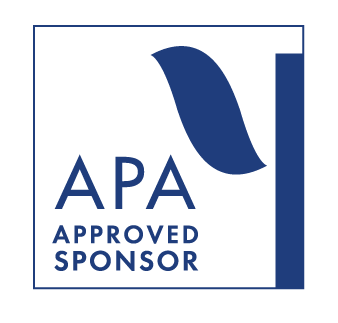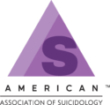Recognizing & Responding to Suicide Risk: Essential Skills For Clinicians
The NEWLY REVISED Recognizing and Responding to Suicide Risk: Essentials for Clinicians© course is an interactive workshop based on 24 core competencies derived from empirical evidence that comprehensively define the knowledge, skills and approaches required for effective clinical risk assessment and treatment of individuals at risk for suicide. The course is designed to meet the needs of Professional Counselors, Psychologists, Psychiatrists, Psychiatric Nurses, Substance Abuse Counselors, Social Workers, Marriage & Family Therapists, Pastoral Counselors, and Other Counselors.
About Recognizing and Responding to Suicide Risk: Essential Skills for Clinicians ©
This advanced 14-hour training is based on 24 core competencies derived from empirical evidence that comprehensively define the knowledge, skills and approaches required for effective clinical risk assessment and treatment of individuals at risk for suicide. This course provides ways to assimilate gained knowledge and skills using a multimodal learning plan with self-paced, online interaction, virtual instruction, and group and dyadic exercises case application exercises.
Participants must attend the entire live training to receive a certificate of attendance. Continued Education credits may be earned for successful completion of the workshop component and submission of the post-evaluation. Participants can earn up to 12.5 credits.
Learning Objectives
Upon completion of this course, participants will:
- Conduct a systematic review to gather information on suicide-related risk and protective factors.
- Identify and document warning signs of suicide risk.
- Make clinical judgments of suicide risk by considering acute and chronic levels of risk.
- Write a suicide risk assessment rationale.
- Minimize risk of liability consistent with the standards of care.
- Select management options proportionate to risk level based on clinician core competencies for managing care.
- Work collaboratively to construct a suicide risk management plan that addresses near-term risk.
- Initiate a conversation about suicide using two interviewing techniques to facilitate open communication about the topic.
- Apply strategies to maintain a collaborative stance.
- Describe assessment approaches based on evidence-informed research.
- Utilize two assessment approaches based on evidence-informed research to determine the relative importance of various suicide risk factors.
- Develop a written treatment and services plan that addresses suicide ideation, immediate short-term and continuing risk for suicidal behaviors.
Continuing Education
Participants must complete the entire live training to receive a certificate of attendance; AAS does not give partial completion credit. Virtual participants must have their camera on during course instruction, and each must use their own device.
Continued Education credits may be earned for successful completion of the workshop component and submission of the post-evaluation. Participants can earn up to 12.5 credits.
APA: The American Association of Suicidology (AAS) is approved by the American Psychological Association to sponsor continuing education for psychologists. AAS maintains responsibility for the program and its content.

NBCC: The American Association of Suicidology has been approved by NBCC as an Approved Continuing Education Provider, ACEP No. 5607. Programs that do not qualify for NBCC credit are clearly identified. The American Association of Suicidology is solely responsible for all aspects of the programs.

NASW (live remote):This program is Approved by the National Association of Social Workers (Approval # 886455354-3864) for 11 continuing education contact hours.
NASW (in person): This program is Approved by the National Association of Social Workers (Approval # 886455354-6472) for 12.5 continuing education contact hours.

Enrollment Fees
- AAS Members: $539
- Non-Members: $639
Enrollment Instructions
Individuals: Visit the American Association of Suicidology Training and Certification Catalog to purchase this live course
- You will need your AAS Community log-in information if you have already created a member or guest account for a prior purchase.
- If you do not currently have an account, you may do so as a Guest or join to be an AAS member and receive the training at a discounted price.
- AAS membership approval can take up to two (2) business days; we recommend waiting 24-48 hours after joining before purchasing any trainings to ensure you receive the member rate.
Organizations: Complete the Training Request Form to be invoiced for the group purchase. Organizations cannot make purchases from the AAS Training & Certification Catalog
- Once payment has been received, a promo code will be provided to the organization to distribute to employees of their selection.
- Each employee must use their AAS Community log-in if they already have an account, or must create a Guest account, to use the promo code for purchasing and accessing the course.
- Organizations have30 days to utilize the total number of promo codes provided to redeem access to the course. Extensions will not be provided.
- The paying organization is responsible for managing and tracking their promo codes after receiving them from AAS, including ensuring all have been used before their expiration date.
If a participant requires an accommodation, they may submit this to training@suicidology.org
AAS Cancellation and Refund Policy
How to Access an On-Demand or Live Course After Purchasing
Once logged in on the AAS Membership Platform using your guest or membership credentials, select “My Learning” to be directed to CrowdWisdom’s learner platform, where you will then have access to view or launch any training content purchased.
For additional information or questions email training@suicidology.org.

